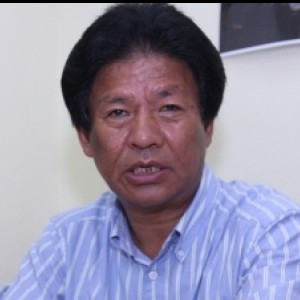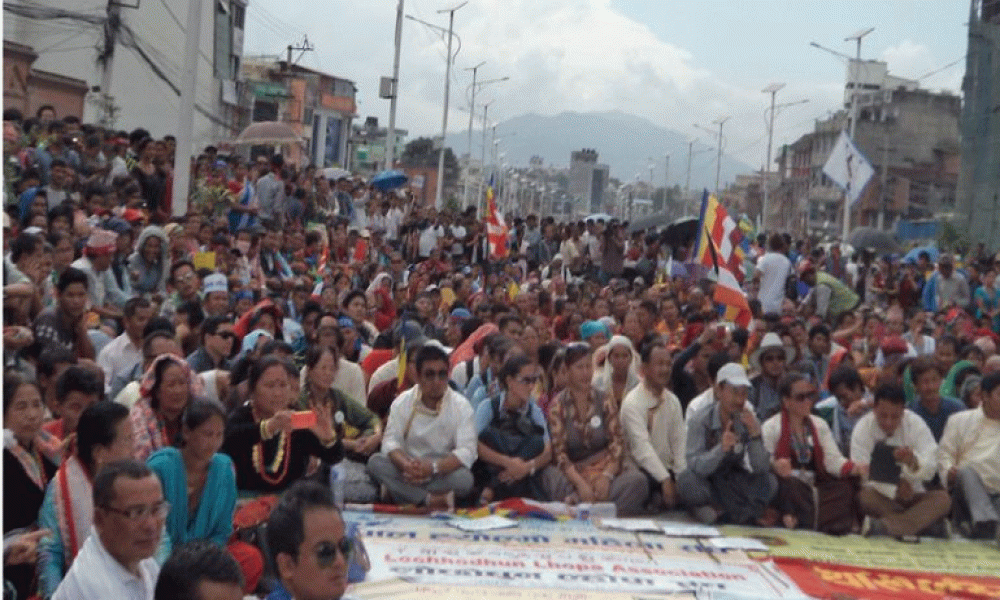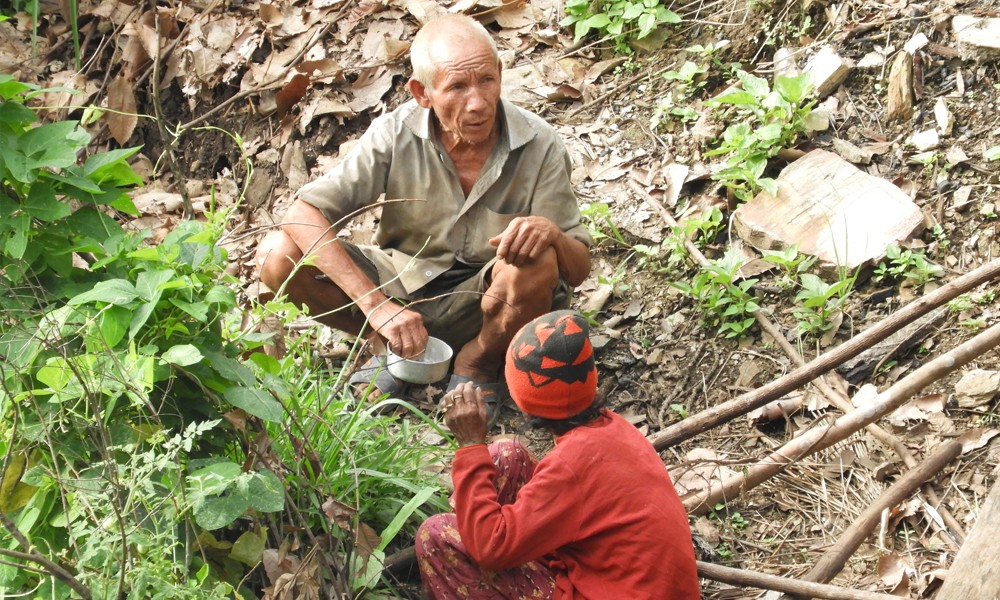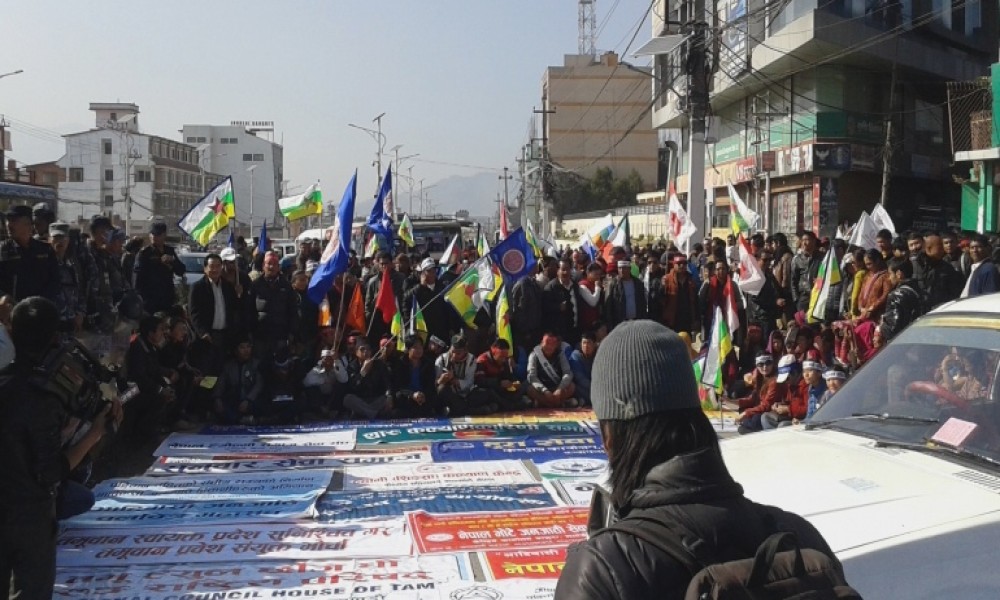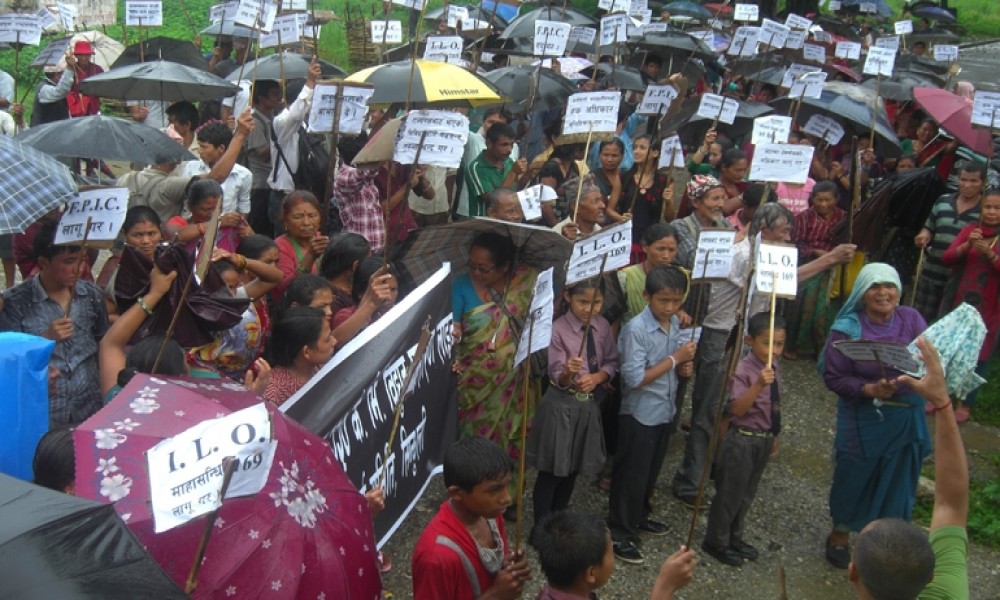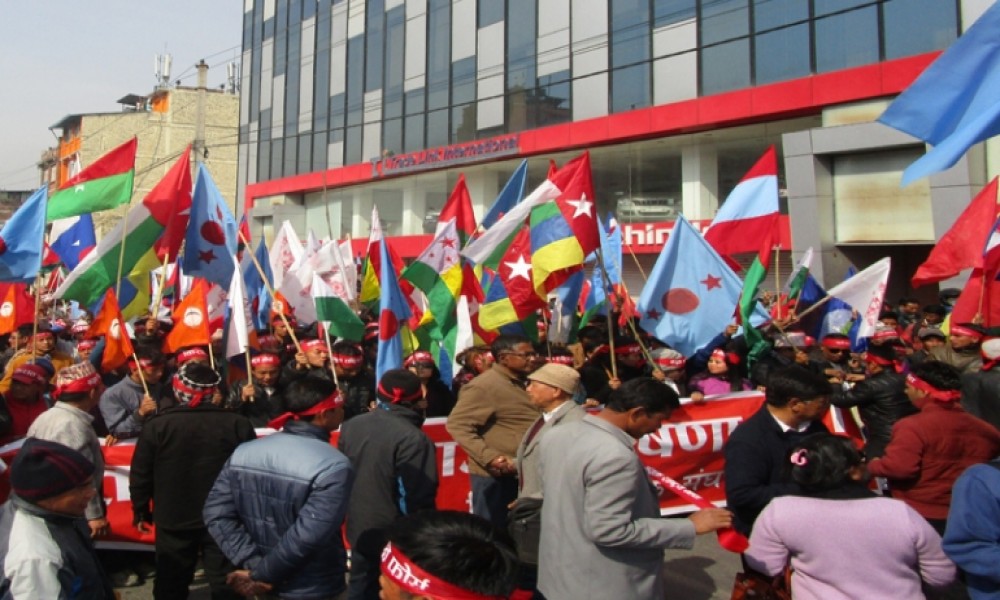When Nepal's new constitution was promulgated on 20 September, many parts of the country were tense. Madhesis had enforced a shutdown in the Tarai. Other indigenous communities like Tharu, Limbu, Magar and Sherpa were also up in arms. Dalits, Muslims, Khas, women and other progressive people were also dissatisfied with the constitution, which was promulgated amidst curfews in various towns.
Some politicians belonging to indigenous community took part in the constitution drafting process. But the community as a whole has rejected it, pointing out various flawed provisions. Here, I have tried to list all the flawed, regressive and anti-people provisions that indigenous people are against.
1) The new constitution is against spirit of interim constitution, comprehensive peace agreement, people's war, people's uprising, Madhes movement, Tharuhat movement, Limbuwan movement and other Janajati movements. The constitution has ignored past agreements with indigenous people.
2) The constitution has not recognized identity and rights of indigenous people. There are some provisions, which will be implemented in accordance with future federal laws. This means there will be ample room to dilute pro-Janajati provisions.
3) Nepal was a secular country in Interim Constitution. The first Constituent Assembly (CA) had also made a resolution to uphold Nepal as a secular nation. The new constitution has also made Nepal a secular notion but with a definition that promotes one religion.
4) Seven provinces have been created without justifiable reason.
5) Janajatis want fully proportional and inclusive electoral system. But the interim constitution allocated only 58 per cent seats for proportional representation. The new constitution is even more regressive. It has allocated only 40 per cent for proportional representation of various castes, communities, class and ethnicities.
6) Interim Constitution, the state restructuring committee of the first CA and the state restructuring commission had guaranteed rights to self determination, political preemptive rights and indigenous people's rights over natural resources. Although Nepal has ratified the ILO convention 169 and UNDRIP, the new constitution is devoid of all these indigenous rights.
7) The new constitution has not recognized traditional justice mechanisms of ethnic communities, their collective rights and Free, Prior and Informed Consent (FPIC).
Some politicians belonging to indigenous community took part in the constitution drafting process. But the community as a whole has rejected it, pointing out various flawed provisions. Here, I have tried to list all the flawed, regressive and anti-people provisions that indigenous people are against.
8) Demarcation of seven federal provinces is against the article 138 (1) (a) of the Interim Constitution, order of Supreme Court and principles of identity and autonomy.
9) Khas language and Devanagari script have been yet again recognized as official language and script.
10) Rights of indigenous women have not been ensured.
11) There are Janajati or Tharu commissions. But these commissions are powerless. And clusters of Tharus and Magars have been divided.
12) Continuity of national flag that is a symbol of Chandra Bansa and cow as a national animal are objectionable.
13) The new constitution has just federated the country geographically with all the power centered in Kathmandu.
14) The new constitution perpetuates dominance of Brahmanism. Defining Khas Arya as a community that deserves reservation is a cunning way to keep supremacy of Brahmanism.
15) Unitary justice system continues.
16) Political parties used whips to force Janajati lawmakers to sign the new constitution.
17)Madhesi and pro-identity lawmakers abstained from voting on the new constitution. It raises question over legitimacy of the charter.
18) There are some dangerous provisions that can be used to impose ban no activities of indigenous organizations.
19) The new constitution is bereft of indigenous people's rights to get information in mother tongues, their use in government owned media and education in mother tongues.


